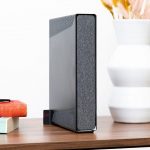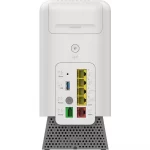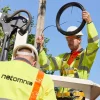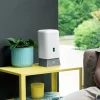Study Finds 36% of WiFi Hotspots in London are Completely Unsecured
A live experiment conducted at six locations around central London (UK) has revealed that 36% (322) of the wifi hotspots identified were “completely unsecure” and potentially a ripe playground for hackers and fraudsters. A related poll also found that only a third of people consider how secure a WiFi network is before connecting.
The Experian Consumer Services study, which surveyed 1,641 adults in the United Kingdom, reported that 50% of respondents “do not understand whether a WiFi network is secure or open” when they connect to it via their smartphone or computer. More worryingly 58% said that their mobile device had been setup to connect automatically to any available wifi networks, which is usually a very bad idea (it might connect to a fake one).
Advertisement
It’s therefore less of a surprise to find that 96% of mobile users who access WiFi hotspots are unsure, or simply don’t know, how to select the most secure settings on their mobile devices.
Peter Turner, MD of Experian Consumer Services UK, said:
“WiFi services and the vast choice of mobile devices are empowering us to live more of our online lives whilst on the go. Whilst this brings many advantages, we still need to be wary of any public unsecure WiFi hotspots.
Think of them like you would a public phone call. You would not openly discuss something personal or private if you thought people were listening, so don’t say it with your laptop, tablet or smartphone. By being blasé, we are all putting ourselves at risk of identity theft.”
Otherwise the survey found that 63.5% use WiFi hotspots to access email, 12.4% use them for online banking and 7.4% made use of one for “work related activities“. Experian has also offered some simple tips to help protect the data you send over wifi networks.
Experians WiFi Security Tips
• Don’t do it now if you can do it later. Really important tasks such as online banking should be done at home, using your secure home network.
• Turn off automatic connection to favourite or preferred networks on your devices. Remember, almost anyone can set up an open WiFi hotspot and so, a hacker only has to use a common network name for a fake hotspot, and you could be automatically connecting to it because the same name is in your preferred network list. Also, check with the venue’s employees to confirm the name of their network.
• Look for the lock icon to the left of the site’s URL in the address bar or check the URL for “https://” to see if the site uses SSL* (Secure Sockets Layer) if you’re entering sensitive personal information on a web page.
• Don’t use any apps if you don’t know whether they encrypt data. Depending on the apps you use on a device, you may be sharing personal information or logon details over WiFi that are not encrypted. One example of this is POP3 e-mail accounts. Your logon details may be shared, as well as your e-mails, completely unencrypted.
• Consider getting a personal VPN. Using a VPN provider can offer a way to protect your data as it travels over open WiFi connections.
It should be said that Experian doesn’t say how many of the wifi networks identified by their experiment were home or commercial connections. A large number of businesses, such as cafes and pubs, now offer free access to open wifi networks.
Mark is a professional technology writer, IT consultant and computer engineer from Dorset (England), he also founded ISPreview in 1999 and enjoys analysing the latest telecoms and broadband developments. Find me on X (Twitter), Mastodon, Facebook, BlueSky, Threads.net and Linkedin.
« End of an Era as ISP BT Finally Scraps UK Dialup Internet Service
















































Comments are closed